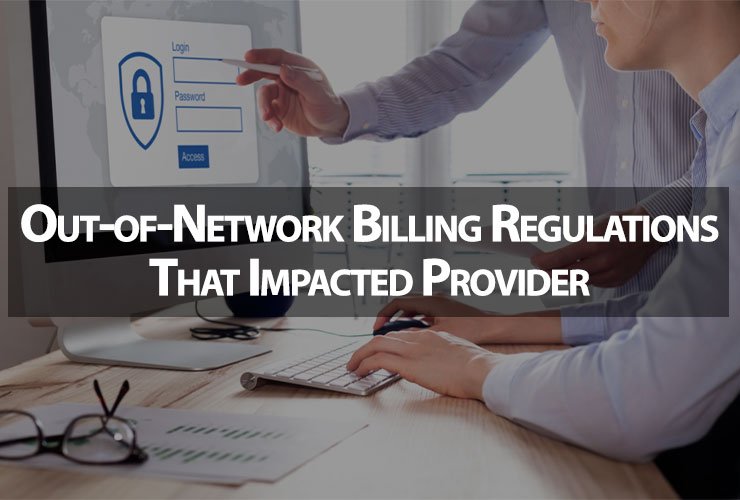
A study by health affairs revealed that state surprise billing laws allow mediators to consider provider charges when determining out-of-network reimbursement amounts for unexpected hospital expenses. This has led to an increase in the billed fees for out of–network care.
Many states had regulations in place to protect patients from unanticipated expenses before the “No Surprises Act” was passed by the federal government. The cycle was also settled to determine the out-of-network rate while surprise billing occurred. State surprise billing regulations stipulate that reimbursement rates cannot be settled entirely by either a payment standard or an independent dispute resolution (IDR) process. Some state regulations allow arbitrators to use IDR processes that consider provider charges.
No surprises act impacts:
The “No Surprises Act,” implemented on January 1, 2022, prohibits authorities from considering provider billed charges when determining out-of-network rates. States with surprise charging regulations can continue to consider provider charges during IDR interactions. These states might allow providers to increase their charges to support out-of-network payments.
Researchers observed provider charges for out-of-network care in New York. The state regulations in New York use an IDR cycle to tie reimbursement rates to charges. In California, however, the reimbursement standard is used to determine payment rates. Analysts also saw examinations that did not have any unexpected charging regulations.
Reflection on surprise billing laws for out-of-network providers
The study includes claims information for over 3.5 million people from Elevance Health, formerly Anthem Inc., who was hospitalized in a long-term emergency. The study reviewed 28,245 New York surprise bill cases, 31,718 Californian situations, and 60,810 situations originating from the Correlation State Georgia, Virginia, and Kentucky.
The pre-period was the period before the state’s surprise billing regulations. Provider charges were comparable in New York, California, and the examination group. Regardless, provider charges in both states changed after the regulations were passed. This is known as the “post-time frame”.
New York’s provider charges increased by $1,157 in the post-period. This represented a 24% increase over the normal pre-period of $4,864. In California, provider charges decreased by $752 post-time, a 25% decrease from the $3,038 pre-period average. New York’s PA specialist charges outside the network grew significantly after adopting state shock charging regulations, which increased by $4,358 (43%). The review found no significant changes in the number of associate specialist charges in California compared with other states.
New York charges increased by $815 (10%), and California charges decreased by $474 (15%) after provider-level boards relapsed. Similar results were seen in California, where charges increased by $1,009 after an emergency clinic board relapse and dropped by $900 in New York. The results were similar when the law used an effective date instead of the section date. New York charges increased by $1,157, while California charges decreased by $929.
It is important for policymakers to understand how shock bill assertions can result in increased out-of-network costs. Supplier charges can be a contribution to the choice of a referee. It is possible that suppliers could increase charges for rare (inside a particular geographic market) non-emergency methods codes to obtain higher installments during a free discussion goal process. Specialists composed.
New York has begun to amend its state shock charging regulation using the No Surprise Act. However, it’s not known at this time whether provider charges will be included in the IDR cycle. New Jersey is one of the states that has not abandoned its regulations to tie provider charges to out-of-network reimbursement rates and abolished the No Surprise Act.
The healthcare administrative and billing guidelines are constantly changing. Your in-house RCM staff is only able to focus on the day-to-day billing activities, so it can be challenging to keep up with regulatory changes over time. Having an audit team that focuses exclusively on these issues is a good idea. They will give you insights into how to adapt your practice to bill accordingly and help you get reimbursed without any disadvantage.
Novita Management, an RCM, RPA, and healthcare IT Company, strives to understand the healthcare industry in order to offer custom-made solutions to improve your practice’s performance. Meet with us to learn more about the ever-changing healthcare regulatory landscape.
